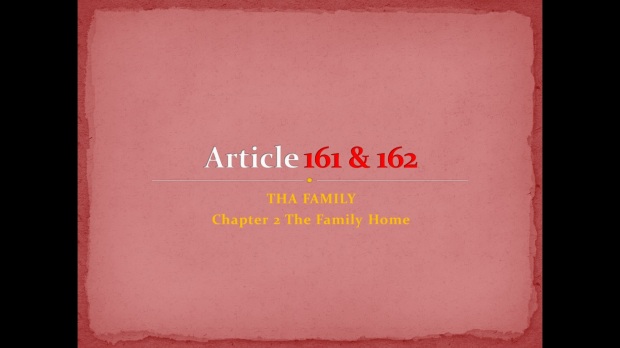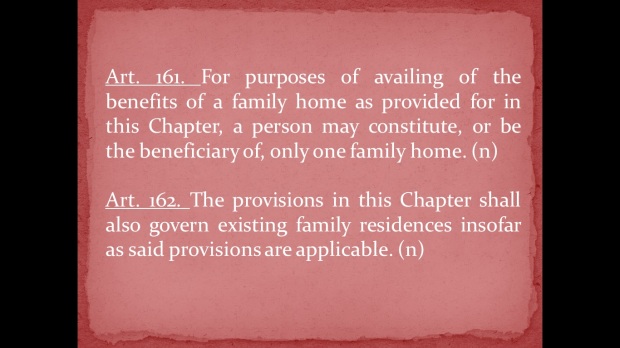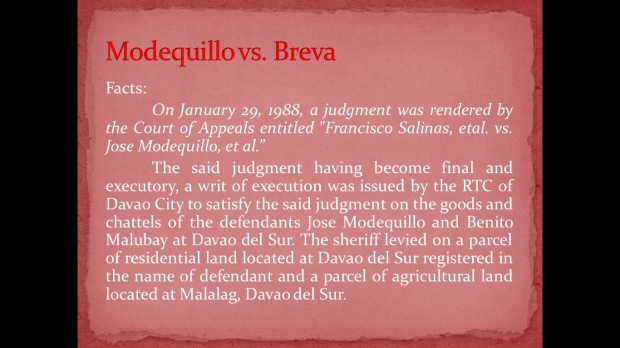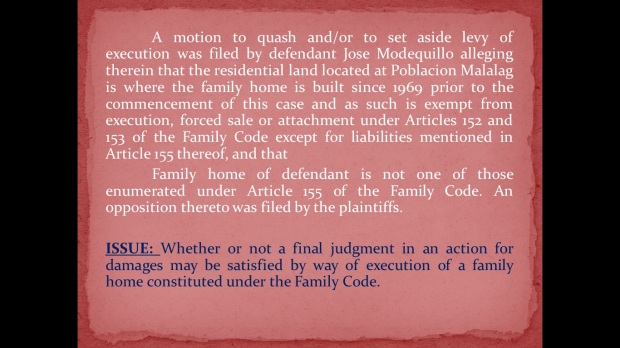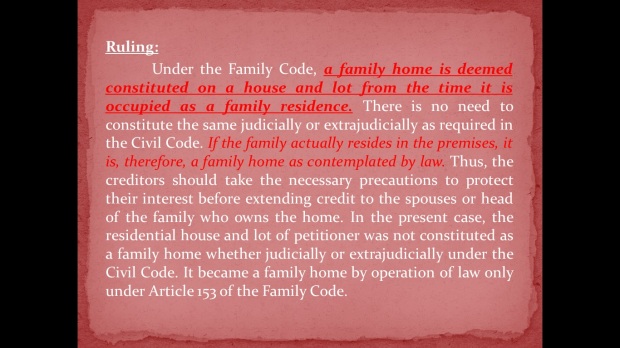By Robinson N Manaig
Article . 149
The family, being the foundation of the nation, is a basic social institution which public policy cherishes and protects. Consequently, family relations are governed by law and no custom, practice or agreement destructive of the family shall be recognized or given effect.
- Paramount importance is given to the family as provided in the 1987 constitution.
Family relations are governed t law and no custom or practice destructive of the family will be recognized.
De Leon vs Court of Appeals, 287 SCRA 94; GR No. 104796, March 6, 1998
Private respondents filed in the RTC of Quezon City a complaint for annulment or rescission of a contract of sale of two parcels of land against petitioners. Private respondents paid the docket fee of a flat rate of P400.00 as Petitioners moved for the dismissal of the complaint on the ground of lack of jurisdiction by the trial court by reason of private respondents’ non-payment of the correct amount of docket fees.
Petitioners argue that an action for annulment or rescission of a contract of sale of real property is a real action and, therefore, the amount of the docket fees to be paid by private respondent should be based either on the assessed value of the property, subject matter of the action, or its estimated value as alleged in the complaint.
On the other hand, private respondents counter that an action for annulment or rescission of a contract of sale of real property is incapable of pecuniary estimation and, so, the docket fees should be the fixed amount of P400.00 The trial court denied petitioners’ motion to dismiss but required private respondents to pay the amount of docket fees based on the estimated value of the parcels of land in litigation as stated in the complaint.
The Court of Appeals held that an action for rescission or annulment of contract is not susceptible of pecuniary estimation and, therefore, the docket fees should not be based on the value of the real property, subject matter of the contract sought to be annulled or rescinded
WON in assessing the docket fees to be paid for the filing of an action for annulment or rescission of a contract of sale, the value of the real property, should be used as basis.
No. The action for annulment or rescission is considered as one which is not capable of pecuniary estimation.
A review of the jurisprudence of this Court indicates that in determining whether an action is one the subject matter of which is not capable of pecuniary estimation, this Court has adopted the criterion of first ascertaining the nature of the principal action or remedy sought. If it is primarily for the recovery of a sum of money, the claim is considered capable of pecuniary estimation, and whether jurisdiction is in the municipal courts or in the courts of first instance would depend on the amount of the claim.
